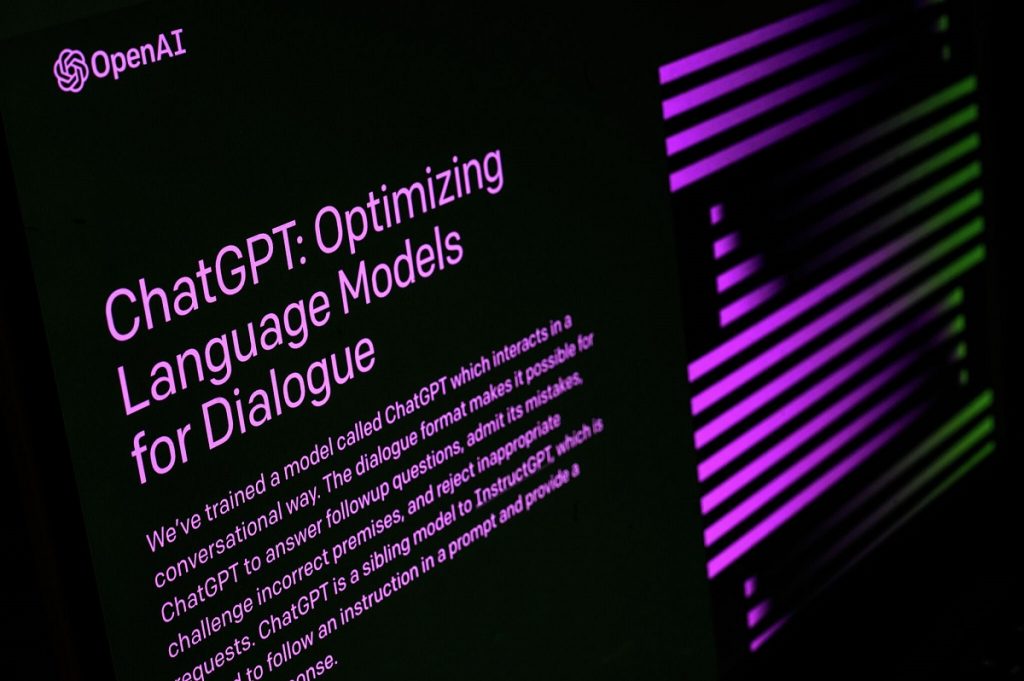ChatGPT has ignited the tech world with its AI-powered capabilities in a matter of months. Developed by San Francisco’s OpenAI lab and hailed as a game-changing technology, it leaves no stone unturned in revolutionizing software quality assurance services, although not without causing several contentious debates over potential ethical misuse. ChatGPT seems more than just an intriguing novelty; rather a force that will shape our future for better or worse.
Then, what exactly is ChatGPT, and how it shall impact our everyday lives? We’ll explore these “burning” topics in the blog today and examine whether AI could replace humans on the job.
ChatGPT inside and out
What is ChatGPT?
On November 30th, 2022, OpenAI released their revolutionary ChatGPT – Conversational Generative Pre-trained Transformer – a deep-learning chatbot that can converse just like humans. Powered by concepts such as extensive language modeling (LLM) and interconnected “neurons,” Chat GPT leverages the wealth of information on the web to create realistic conversations – simulating human brain processes with remarkable accuracy.
ChatGPT is revolutionizing the world with its advanced programming technology. With high precision, it offers helpful, truthful, and logical answers that can threaten certain roles traditionally held by humans. Businesses need to pay extra attention to capitalize on ChatGPT while remaining vigilant of any potential negative impacts it may bring.
ChatGPT in practice
Taking the world by storm as its capabilities go far beyond what many of us imagined. ChatGPT can act as a confidant, mentor, or even therapist by being able to answer questions and provide advice in challenging relationship matters. Moreover, it enables users to efficiently produce resumes and cover letters tailored for them while clarifying complex undecipherable topics on Google, such as wormholes, dark matter, or physics-related knowledge. Music lovers will be elated with ChatGPT’s ability to compose tunes from various genres. At the same time, readers rejoice at having content crafted multilingually, remembering mathematicians who benefit from step-by-step breakdowns of wide-ranging math problems solved within seconds! Last but not least is an incredible feature where this excellent bot generates unique art that strikes artists around the globe with fear of being replaced by this very tool shortly.
There is no exception in the software quality assurance services. While ChatGPT astonished us with its capacity to write, debug and explain code thoroughly like a pro, it does come with its limitations. Despite the exciting potential of ChatGPT technology, it must be noted that there are considerable boundaries to its accuracy in data detection and collection. In various scenarios, these risks may even lead to serious harm, which Meta, unfortunately, experienced when they released their BlenderBot 3 chatbot in 2022 – unexpectedly creating a bot with believability issues beyond what was anticipated: the chatbot “forgets that it is just a bot.” As evidenced by this incident and other current limitations, much room is left for growth in encouraging the reliable use of ChatGPT solutions moving forward.
ChatGPT in Software Quality Assurance Services
ChatGPT is changing the game in tech – but what does it mean for software quality assurance services in general and software testing in detail? Would it become a go-to solution, revolutionizing traditional processes and unlocking new possibilities?
ChatGPT is taking over the Automation Testing or not
ChatGPT not only offers natural and lifelike conversations, but it can also provide a quick method of producing exact programming code with just an ordinary language request. Its talent for quickly adapting to multiple languages and frameworks makes ChatGPT a power player in the software industry – offering assistance on many aspects and processes found within testing procedures, especially in:
- Writing automation test scenarios
- Creating a complex test automation pipeline that uses CI/CD
- Using various microservices to test applications
- Providing the middle-level code and detailed instructions on how to use it
Dominik Sobania and partners have uncovered extraordinary potential in ChatGPT within their recent study, with the ability to identify a stunning 77.5% of bugs, much higher than the data collected from previous deep-learning counterparts. Proactive bug-fixing is now within reach for developers and testers alike, thanks to this breakthrough technology that delivers impressive results, fixing 31 out of 41 provided bugs, greatly enhancing productivity without compromising accuracy or time efficiency. It’s clear: automation testing just hit the fast track!
ChatGPT vs. Software Assurance Tester
As software automation testing continues to expand, ChatGPT stands as an intriguing option in the future of software quality assurance services. Could AI-driven prodigy be supplanting human software quality tester?
After much debate, the consensus on this troubling question appears to be “No.” Experiments have been conducted to test ChatGPT’s capability for completing a task-based scenario versus that of humans. Though it could generate code from specific parameters set by researchers systematically, certain boundaries remain, notably its tendency towards fabrication and limited understanding of offscreen events. Nevertheless, even with these limitations in mind Michael Osborne, a Machine Learning Researcher at Oxford University, sees this as an encouraging moment for automated technology: “Large language models have limited reliability, limited understanding, limited range, but can always improve upon their reliability thanks to human ingenuity and supervision” to reach its full capacity.
Conclusion
In a nutshell, ChatGPT is stirring up our current world with its groundbreaking features that we all constantly admire. From helping people write medium-level content to generating simple code, it’s no wonder why this technological breakthrough is inspiring future innovations and soon becoming an essential part of our daily lives. However, the ever-changing software quality assurance industry requires a human touch. One that can be augmented but irreplaceable. Critical thinking and curiosity are distinctly human traits that will serve as the bedrock for future innovation – especially within Software Quality Assurance services. ChatGPT may support testers by saving time while streamlining productivity; however, they must supplement this with their savvy to stay ahead of the game come tomorrow’s newest solutions.
ContactContact
Stay in touch with Us




